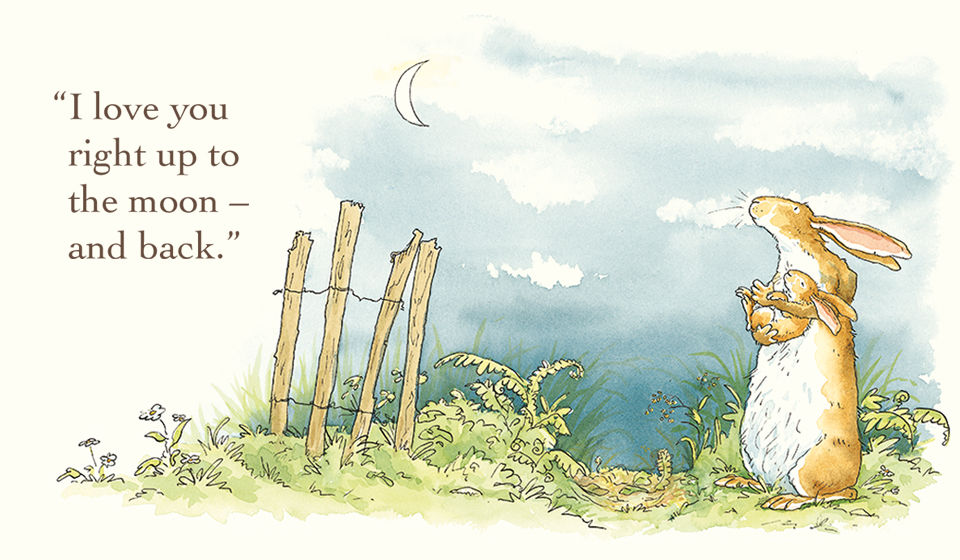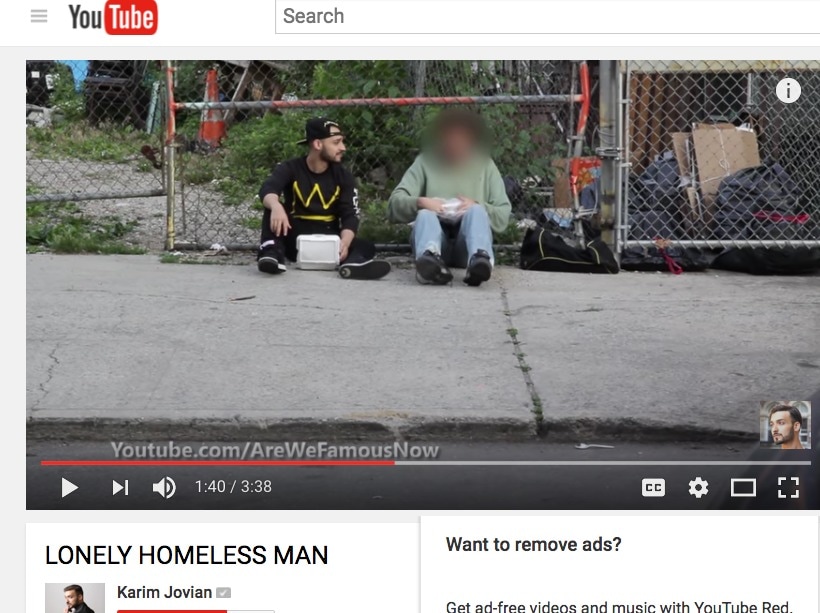 "We choose love. It doesn't just happen." I heard someone once say. I'm not sure what it was based on, but you know what? Sometimes it does just randomly happen. We choose to love might have been a better way to put it. We choose to love. And we chose to do it by taking small steps of love every time we are given the opportunity. (which is basically, anytime there is another being around). We choose to love whenever there is an opportunity for us to do it. "A smile, a handshake, a word of encouragement, a phone call, a card, an embrace, a kind greeting, a gesture of support, a moment of attention, a helping hand, a present, a financial contribution, a visit ... all these are little steps toward love." writes Henri Nouwen. Each time we choose to love, we are giving another an opportunity to receive love. This is a choice, no doubt. But not always. If I smile at you, you don't have to smile back or accept it with your heart. The simple fact that I smiled and you saw long enough for it to register...love just happened. You can reject this loving gesture or you can accept it, but once you see it happen there is no turning back. Each little step of love "is like a candle burning in the night. It does not take the darkness away, but it guides us through the darkness. When we look back after many small steps, we will discover that we have made a long and beautiful journey." So yes, we choose to love so others can choose our love. Just a thought. You can accept it or not. Jesus drops this F-bomb a whopping 156 times! When our kids were little, one of our favorite bedtime books was, “Guess How Much I Love You.” It’s a lovely tale about a baby rabbit who stretches his arms as wide as he can and tells his daddy he loves him…this much! His father, who has longer arms, stretches his out even wider and says that he loves his son even more. Next the baby rabbit, standing on his tippy-toes, raises his arms up high and again tells his daddy he loves him this much. And again, the taller father raises his arms up and says he loves his son even more. Then the baby bunny hops as high as he can. And you can guess what the father did next; he jumped higher. The little bunny finally looks up into the heavens and he tells his dad he loves him all the way to the moon. And his father takes in the moment, letting the joy sink deep into his heart before he replies, “I love you right up to the moon—and back.” As both a father and a son, I have shared tender moments like this hundreds, if not thousands of times. I know how lucky I am, and I count my blessings with every hug and every kiss still I get. Each one, a gift from my father who art in heaven. Father’s Day can be difficult for many reasons. For some, it’s a sad reminder that you can’t just pick up the phone and say, “Hey dad, what ya doin?” For other’s it’s a painful reminder of a not so good childhood, perhaps a father who was emotionally absent or physically abusive. And then there are those who never knew their real dad, but spent a lifetime trying to find a surrogate. Maybe you are a dad, carrying around the weight of regret from past mistakes. And now you are sitting by yourself; wondering when or if your kids are going to stop by or call. This list can go on and on. So you can understand why it’s difficult to preach on Father’s Day and Mother’s Day. But Jesus calls God “Father.” And whether we want to or not, we eventually will have to address the subject. If you had, or have, positive male role model in your life, then Jesus’ depiction can sound warm and natural. But if you’ve had a serious, negative experience with your father or with any man, then the masculine overtones in the Bible might cause you to cringe. When Jesus referred to God as His Father, he certainly upset many of His religious contemporaries. What does it mean to call God Father? Is God a man? Or some ancient Middle Eastern patriarch? In John’s gospel alone, Jesus drops this F-bomb a whopping 156 times. In three of those incidences, Jesus calls God “Abba.” Each time he does so, he is inviting us to not only see God in a different light, but to see ourselves differently as well. To a young Arabic boy, Abba is an affectionate name that basically means, “Daddy.” In using this word, Jesus is depicting God as a tender and compassionate parent. The word evokes a sense of trust, and confidence, and sense of belonging “close to the Father’s heart.” When Jesus calls God “Abba,” he is reminding us of where our real home is. And who we really are: the beloved children of God. And this is the good news. Long before we were knitted in our mother’s womb, we belong to God and God belongs to us. But that’s not all. As a Father who longs to gather his children together, God came to be with us because every child matters to God. Jesus is our reminder that our Father hears the cries of his children and rushes to earth—in person, in body, in flesh—because one child is lost and alone, and because one child is hurting from abuse, and because one child who is in need is one child God will not ignore. There is nothing God won’t do to bring us back, close to his heart where we belong.  This idea comes to life in another children’s classic, “Finding Nemo.” A wonderful story about a young clown fish, named Nemo, who is taken from the ocean and the length his father, Marlin, will go to find him and bring his son safely home. If you’ve seen the movie, then you know Marlin is an overly-protective single dad who panics and frets over every little thing. But when Nemo is scooped up Marlin doesn’t think twice to chase after the speedboat that has his son. Lost in the dark, vast ocean Marlin meets a friendly but forgetful fish named Dory. Together the two will travel great distances; encountering sharks, dodging jellyfish, and hooking rides with turtles along the way. In spite of all his fears and neuroses, Marlin keeps his eye on the objective…Find Nemo! And in the end, it pays off. The two are reunited. And because of the experience the two become the fish they were destined to be. While there are real limitations to how far humans can go to save someone they love, when we set our eyes on Jesus, the Word made flesh, we are reminded of the true lengths our Abba will go for you and me. We matter to God. This is not some fish tale or happy bedtime story, although it makes me sleep better knowing I am loved and cared for. This is the good news. God so loved us that he gave us his Son to reclaim us, redeem us and return us “to the Father’s heart.” Through Jesus we are given God’s name and inherit God’s pure love. And together we all become one with God, sharing one spirit and one life together. Thus we are called to be faithful and loving fathers, mothers, brothers, and sisters to one another. As children of God, we become part of the family business, so to speak. So whatever the emotions you are feeling today, remember this. You matter to God because you are a part of his own heart. Whenever there is sadness, or pain, or fear, or injustice…the love of the Father is always here…in us…from me to you…and to the moon and back. Let us pray: Abba, Father…you have claimed us, redeemed us, and welcomed us…all because you love us. Send us out into the world to love others in all the ways your Son has taught us. Amen. Works Cited Manning, Brennan, and John Blase. Dear Abba: Morning and Evening Prayer. Bonafire Books, 2010. Nouwen, Henri J. Bread For the Journey: A Daybook of Wisdom and Faith. New York: HarperCollins, 2009. Spangler, Ann. faithgateway.com. faithgateway.com/god-abba-father/#.WUSrASMrK-w (accessed June 15, 2017). Wittmer, Mike. ourdailyjourney.org. www.ourdailyjourney.org/2017/01/02 (accessed June 15, 2017). St. Francis of Assisi taught his monks that it’s more important to be Jesus than merely worshiping Jesus.In the beginning of his Franciscan Rule, Francis of Assisi wrote, “The Rule and the life of the Friars is to simply live the Gospel.”
As the story goes, after Francis wrote up his rules and sent it off to Rome for review, it’s rumored that the Pope quickly returned it with a small note attached that said, “This is no rule, it’s just the gospel.” I can only imagine Francis wanted to reply back with a note of his own, “ Well, Duh!” The good news is you don’t have to be a monk to know that a gospel-filled life is a good rule to live by. Yet for some reason our brain insists on making it complicated. Because it’s so simple and clean, it seems the only way we can control it is to divide it up into little divisive, right or wrong arguments. Thus obstructing, if not down right killing, the spirit of living in God’s blessing. As our country stands more divided than ever, I can’t help but wonder what life might be like if we actually practiced what Jesus preached: a gospel life of non-judgmental love, unconditional forgiveness, shameless peace-making and universal reconciliation. What would it take for us to live intentionally as Jesus lived? If we can learn anything from Francis, we need to look no further than the gospels; especially the Sermon on the Mount. Beginning with the Beatitudes we see a way of life that is radically different than what the world has to offer. Francis took these words to heart. He believed that if Jesus meant what he said, then he best begin to act accordingly. Whenever I read the beatitudes, I am often struck with their poetic beauty and at the same time, overwhelmed by their perceived impracticality. I admire the instruction, but I often fear the implications of putting these words into practice. We live in a time when blessings are reserved for those who succeed, and often at the expense of others. Poverty and meekness seem so unattractive in a culture grounded in competition and fear. It’s easier for us to just dismiss these blessings as impossible challenges for ordinary living. Only the greatest like Francis are up to the saintly task. Still, Jesus invites us all to live a life that turns our assumptions upside down. And he begins with the beatitudes; offering us three basic principles to how to live intentionally in God’s righteousness: simplicity, hopefulness, and compassion. When Francis read the Beatitudes, he noticed that the call to be poor stood right at the beginning: “How blessed are the poor in spirit!” He saw poverty as “the foundation and guardian of all other virtues.” Raised in a house of privilege and power, Francis chose to give away all that he possessed. But is Jesus calling you to give away your material wealth? (my kids are nodding their head) Or is it something else? Jesus main mission was to announce the Kingdom of God has come. And blessed are the poor in spirit…theirs is the kingdom…it’s in the present tense! This is good news for those who believe their cries are going unheard. God has come to relieve you of your burdens. God is ready to give you your heart’s desire. The only catch is you have to let go of those things that keep you from accepting what is being offered: unconditional love and mercy. This could mean letting go of material wealth, for that brings it set of problems. But it could also mean being humble; a state of being that frees you of the emotional baggage your ego will protect at any cost. It’s like a coffee mug that has old coffee in it. You don’t want a cold cup coffee, you want a fresh, hot cup. What do you do? You dump out the old coffee into the sink and refill it with new coffee from the pot. It’s that simple. So too is a gospel life. For How blessed are you when your cup is empty; there is more room for God to fill you up again! A gospel life invites us to let go of the things that stop us from living simply and fully in God’s abundant love and grace. Simplicity is the first principle. The second is hopefulness. Given all that is happening in the world today, it’s hard for me to find anything good to put my hope in. Cynicism has become the norm. And whole generations have become so numb and apathetic that they accept whatever… regardless of the consequences. Jesus invites us to take the opposite point of view; which is hopefulness. Francis placed his hope in the one who offered hope to the hopeless and the downtrodden. Like Jesus, he had witnessed how the hands of greed were strangling the poor; holy wars were shedding the blood of the innocent. Like Jesus, Francis went to those who were considered worthless by societies standards. And like Jesus, Francis loved them and cared for them equally; reminding them of their value in the Kingdom of God. God’s love is here, now, which tells us life as we know it will change forever. Jesus invites us to live in the presence of the Spirit who protects the meek and persecuted, and provides support for the peacemakers and pure in heart. So when we let go and let God fill our lives, we can stand in the world sure of the possibility that the day will come when mercy, humility, peace, and love are the norm. Thus, Francis taught his monks that it’s more important to be Jesus than merely worshiping Jesus. We are called to be a mirror of Christ in the world, and to see Jesus in all the work that we do, and in all the people we meet. It will serve us well to treat all people…as if you are serving Jesus Chris himself. I can think anything else that offers the world a lasting future, or hope of a better life. A simple life, grounded in the hope of Jesus, will free us to live a life of compassion, which is the third principle. Compassion is the inner recognition that your neighbor shares your humanity with you. It empowers us open the curtains and tears down the walls we’ve built around ourselves, so we can see the Christ within ourselves and in others. Compassion is the great unifier and equalizer. And dare I say, it is still the best peacekeeping weapon ever designed. In spite of all our shortcomings, Jesus always remained impartial in the way he loves us, as one body with one soul, born out of one love. He knows our wounds and sees our scars. He knows our pain, and the baggage we carry, because he’s walked with us, cried with us, felt our embarrassment, and suffered alongside us. Even when we reject him, he never stops pouring out his love upon us. This is the life in which we are all called to live; a gospel life of love and forgiveness for all our brothers and sisters. The way of life Jesus calls us to live is truly transformational; able to heal and repair the damage our egos have caused throughout history. This does not mean there won’t be hardship and difficulties of all different shapes and sizes. When you live counter to culture, you can pretty much anticipate bad things will still happen to good people. But Jesus reminds us:
How blessed are those who realize that living a gospel life is not irrational at all. Instead, it’s the only truly rational way to live. So you see, you don’t have to be St. Francis, or Mother Teresa or Gandhi to live a gospel life. You just have to be…Jesus. work cited Adapted from Richard Rohr, Franciscan Mysticism: I AM That Which I Am Seeking, disc 3 (CAC: 2012). Francis of Assisi, “The Later Rule” (1223), chapter 1. See Francis of Assisi: Early Documents, vol. 1 (Hyde Park, NY: New City Press, 1999), 100. Bartlett, David and Barbara Brown Taylor, ed. Feasting on the Word: Year A, Vol. 1. Westminster John Knox Press. (Louisville, 2009). pp. 308-312. “God wanted to make sure that Jesus’ friends were the inheritors of Jesus’ breath.” I love Pentecost, and not just because of all the wild and weird imagery. I love it because I get to tell a story about a parishioner who once stopped me just as church was beginning to ask a “quick question.” As you probably know, “there are no quick questions.” And to make matters worse, we were already behind schedule. The choir was beginning to precess and the acolytes were already leading the way. Yet I could see there was something on his mind and he needed my attention. With all seriousness he asked, "What is the Holy Spirit?" I’ll give it to him. It was a quick question. But are you kidding me? It took the early church fathers decades to agree on a doctrine of the Holy Spirit. All my seminary training flew out the window as I blurted out the first thing that came to mind. That was… “Wind and breath.” Yes, I summed up one of God’s greatest qualities with two things that come out of me every morning. If we were to do a little word study, we'd see that both the Hebrew word ruâch and the Greek word pneuma are both translated the same: wind, breath and spirit. And so its not a stretch to say the Holy Spirit is the very breath of God, the wind that whips around us, and yes, the very air we breathe. Wind is easy to explain. I can feel it as it tickles my face and tussles my hair. I can hear it rustle through the leaves, watch it kick up dust, and see it makes ripples in the water. Breath is also something I get. On cold days I can see it, nearly every morning I can smell it, and when I'm out running I can even hear it. Just as wind is a part of every day, breath is a part of every human being. Rarely do we give much of a thought…until it is hard to breathe. But Spirit is something unique. It has no scent. It’s shapeless and formless. It’s invisible and hard to grasp. I don’t really think about it until I need it. When I’m feeling down or alone, or troubled by a thought or lacking creativity, I pray for the spirit to lift me up. If I truly focus my attention inward, I can feel the Spirit moving within me. Why? It’s because the Spirit is always here; fully alive and fully present. Just as God sent Jesus to be with us, God placed the Spirit within us. This is how it’s been since the beginning, when the earth was a formless void. The Bible story begins with the ruâch of God sweeping over the face of the waters; breathing all creation to life. It was the first thing to BE and it has never ceased to be. Recently, there has been a lot of talk about creation care, and not just among Christians. Believe it or not, there are people all around the world who have formed a unified, global coalition to protect this wind, breath, spirit. They actually believe the air we breathe is important to our survival. They argue the environment needs to be protected even if it means we have to make some sacrifices. Instead going on a political rant, I’ve decided to borrow a wonderful illustration by Barbara Brown Taylor to make this point. Taylor compares God’s Spirit to our earth’s atmosphere. This invisible layer of gases that surrounds our planet keeps the oxygen we breathe from being sucked out into the cold, consuming vacuum of outer space. Inside this layer is all the air that ever was, is, and will ever be. There is no intergalactic space corporation pumping in new air into our atmosphere. Leaving us with a great responsibility. In fact, it’s the same old air that continues to recirculate, passing from one generation to the next. How cool is that? God’s first breath is still blowing through this world, filling our lungs with life. To think that the same breath exhaled by dinosaurs, Pharaohs, and Greek philosophers, is the same breath you and I are inhaling right now. Every time a baby takes his first breath, he’s taking in someone’s last. When Jesus exhaled his last breath on the cross, it became part of the air that is present right now. What does that suggest about our responsibility as faithful Christians to remain part of the global effort to protect our environment? In our reading this morning, we see how God took that resurrected breath, and strengthened it into a mighty wind that shook throughout creation. Like a holy hurricane, it blew through the upper room on the Day of Pentecost; igniting sparks that burst into flames above the disciples’ heads. The people could not contain themselves. They were so giddy with awe and amazement; so much so that some onlookers accused them of being drunk. This Pentecost picture is a vivid and colorful one, to say the least – tongues of fire, a powerful wind. Taylor captures it well by beautifully stating it was as if “God wanted to make sure that Jesus’ friends were the inheritors of Jesus’ breath.” Isn’t that cool? We are all inheritors of Jesus’ breath. The same power that raised Jesus from the dead is available to you and me. So breathe it in generously. With one single breath, God renewed the face of the ground, created life out of nothing, and even new life out of death. In the same manor it fill up our entire being, transforms and renews us. Pentecost was not a one-time event – it’s a never-ending gift that constantly fills us with hope and purpose. Let’s think about that for a moment. Breath is life. Jesus gives us the assurance that each time we take a breath we receive new life in God’s peace, love, justice and forgiveness. With each breath comes the responsibility in which every breath we exhale must reflect the same grace given to us. In his response to the irresponsible decision to pull out of the Paris Climate Accord, Narendra Modi, the Prime Minister of India, said, “We must not steal something that rightfully belongs to the next generation. We have to make sure we leave behind a beautiful and bountiful nature for future generations, so they can live peacefully, breath fresh air, and live a good life.” Our purpose, as inheritors of Jesus' breath is to recirculate the wind and breath of hope for the future generations. As followers of Jesus, we must act with love and justice, to care for others, and all of God’s creation; embracing a way of life here and now to ensure a better future – for ourselves, and for all people of every nation, throughout all the generations. Our day-to-day experiences are probably less spectacular then the one on Pentecost; but the Holy Spirit is no less present within us now… than it was to them, then. It may not be as obvious as tongues of fire, but it moves in and through us like a powerful wind, in the way we share our needs, desires, and hopes with all humanity. It is present in this space and present within you, because you are part of the sacred body of Christ, a holy temple of the Holy Spirit. It was Jesus who emptied himself of his last breath, so we could be filled. Go and do likewise. As the Body of Christ, we must empty ourselves of our fears, doubts, anxieties and worries – the things that deflate us and pollute the world. We must exhale this stuff in order to inhale the true breath, the Spirit of life. As you leave here today, remember this: Your breath is Jesus’ breath. It keeps the heartbeat of church, and all of life, alive. This breath is our gift and it must be shared as a gift for others in order to experience real life and true peace. Pentecost is a reminder for us that we are not simply called to know Jesus or merely study his words; we are called to live in the Spirit of Jesus; the Spirit of love and justice and forgiveness. When we faithfully live out a Spirit filled life like Jesus taught us, we become closer to God, and more intimate with others. It’s in this shared experience that we begin to heal what is broken, reclaim hope we once thought was lost, and to repair the damage caused by a lifetime of neglect. By this and in this very spirit…the breath of God, the very breath of life, will forever recycle itself over and over again; making the entire planet, and not just America, is great again. * Based on the sermon The Gospel of the Holy Spirit by Barbara Brown Taylor. Home By Another Way. Cowley Publications. (Kindle Locations 1457-1460). Kindle Edition. Bartlett, David and Barbara Brown Taylor, ed. Feasting on the Word: Year B, Vol. 3. Westminster John Knox Press. (Louisville, 2009). pp. 3-7. While wasting my time on Facebook, I came across this important reminder of what I should be doing instead...that is to say, getting to know people better. This is a short, but powerful clip about one man spending time with a lonely stranger. But there is more to the story: click here to watch
|
Ian MacdonaldAn ex-copywriter turned punk rock pastor and peacemaker who dedicates his life to making the world a better place for all humanity. "that they all might be one" ~John 17:21“Prius vita quam doctrina.”
~ St. Thomas Aquinas (1225–1274) * “Life is more important than doctrine.”
Archives
June 2024
|
